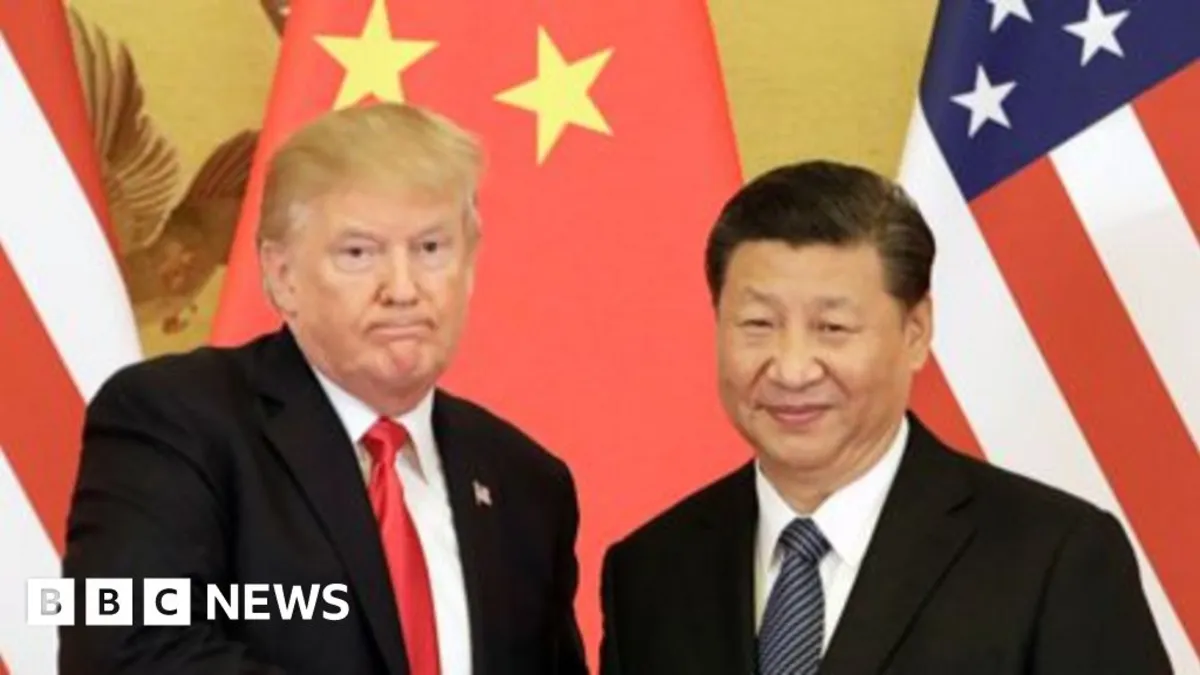
Last week, China's Ministry of Commerce made headlines with the release of Announcement No. 62 of 2025, a significant document that has disrupted the fragile tariffs truce between China and the United States. This announcement introduced sweeping new restrictions on China's rare earth exports, tightening Beijing's control over the global supply of these critical minerals. The move serves as a stark reminder of the leverage that China maintains in the ongoing trade war with the US, particularly under the leadership of former President Donald Trump.
China holds a near-monopoly on the processing of rare earths, which are essential for manufacturing a wide range of products, from smartphones to fighter jets. Under the newly implemented regulations, foreign companies are now required to obtain approval from the Chinese government to export products containing even a minimal amount of rare earths. Additionally, they must declare the intended use of these products, further tightening China's grip on this vital resource.
In reaction to these new restrictions, US President Donald Trump threatened to impose an additional 100% tariff on Chinese goods and implement export controls on key software products. US Treasury Secretary Scott Bessent expressed strong sentiments about the situation, stating, "This is China versus the world. They have pointed a bazooka at the supply chains and the industrial base of the entire free world, and we're not going to have it." The situation escalated as China accused the US of provoking unnecessary misunderstandings regarding the rare earths restrictions.
This week, the two largest economies have also introduced new port fees on each other’s ships, signaling a renewed flare-up in the trade war. This escalation comes after several months of relative calm, following a truce brokered by top officials from both nations in May. As Trump and Chinese President Xi Jinping are expected to meet later this month, experts suggest that the rare earths restrictions could give China a strategic advantage in these discussions.
Rare earth minerals are crucial for the production of advanced technologies, including solar panels, electric vehicles, and military equipment. For instance, a single F-35 fighter jet requires over 400 kg (881.8 lbs) of rare earths for its various components, such as stealth coatings and motors. Furthermore, China's rare earth exports account for approximately 70% of the world's supply of metals used in magnets for electric vehicle motors, according to Natasha Jha Bhaskar from advisory firm Newland Global Group.
China has invested heavily in establishing its dominance in global rare earth processing capacity. By nurturing a vast talent pool and developing a robust research and development network, China has positioned itself ahead of its competitors. While the US and other nations are making significant investments to develop alternatives to Chinese rare earth supplies, they face a long road ahead. Australia, with its large deposits of rare earths, has been identified as a potential challenger. However, its production infrastructure remains underdeveloped, resulting in higher processing costs.
Despite the recent downturn in rare earth exports, which have reportedly dropped by over 30% compared to the previous year, analysts suggest that China's economy will likely remain unscathed. Rare earths account for a mere fraction of China’s $18.7 trillion economy, with some estimates placing their contribution at less than 0.1% of the annual gross domestic product (GDP). While the economic impact may be minimal, the strategic value of these minerals provides Beijing with significant leverage in negotiations with the US.
Despite the tensions, Bessent has indicated that the door remains open for negotiations, expressing optimism about de-escalation. During a recent meeting with Blackstone's CEO Stephen Schwarzman, China's Foreign Minister Wang Yi emphasized the need for effective communication between the two nations. He called for properly resolving differences to promote stable and sustainable development in China-US relations. According to Prof. Sophia Kalantzakos from New York University, China's recent actions are setting the stage for upcoming trade discussions, leveraging its rare earth export controls to pressure the US for a favorable deal.